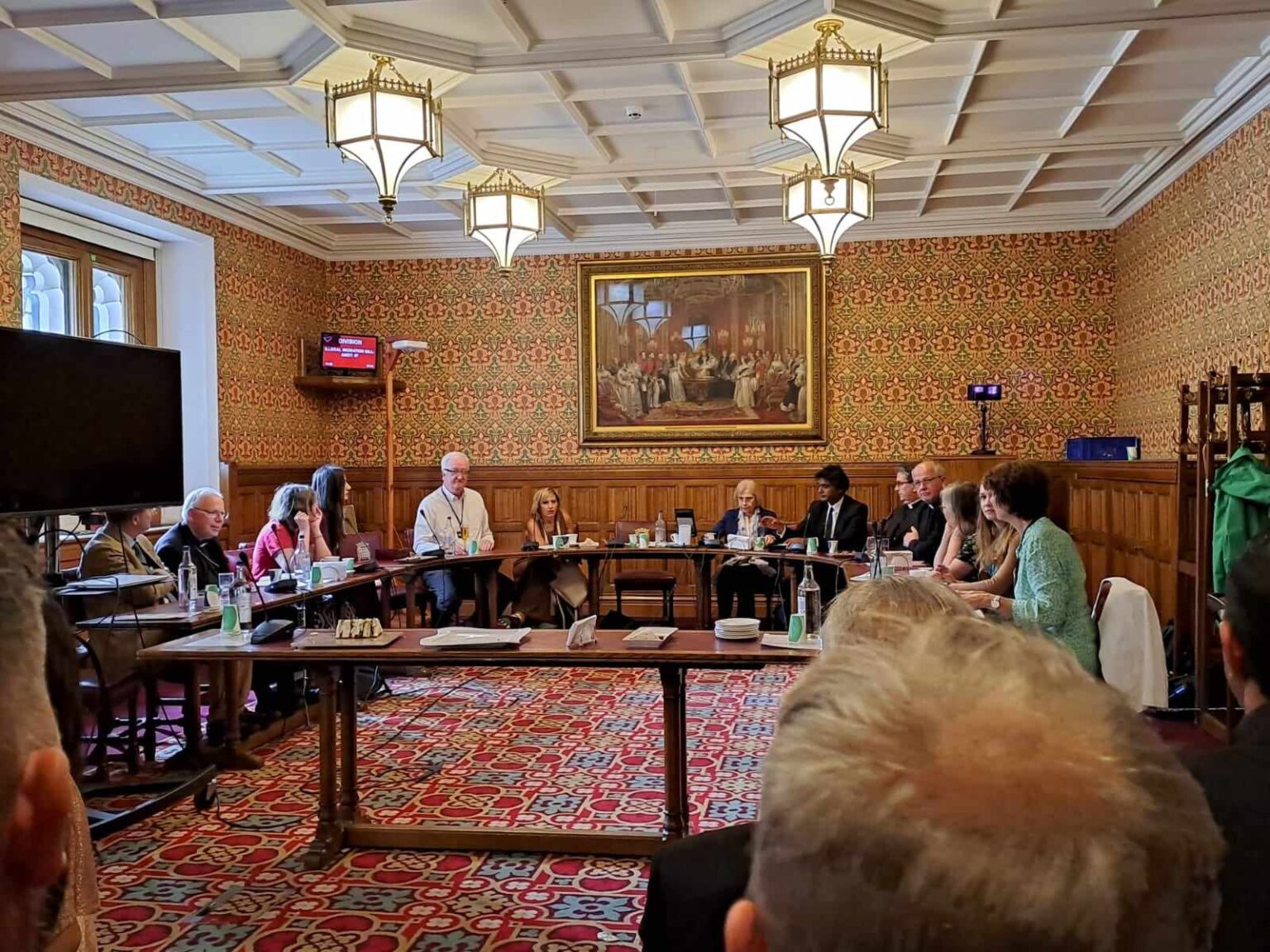Kairos Forum a Catholic organisation that helps and celebrates those who experience disability, hosted a series of events to introduce people to Edith Stein, the great Judeo-Catholic saint whose life and teachings offer the perfect example of how to value everyone – particularly those with disabilities.
The Kairos Forum hosted three unique events in July to bring people closer to this inspirational Catholic saint. The first, on Sunday 2 July, was a day of celebration at Aylesford Priory in Kent. It’s was a free of charge event, open to all, and for the Catholic community was a day of shared pilgrimage – a celebration of creative people who experience disability who will tell Edith Stein’s story.
A three-day conference, also took place at Aylesford Priory, from 4 – 6 July, that celebrated the wisdom of Edith Stein. Titled ‘Dignitas Personae et Amor Dei: The Value of the Human Person and Divine Love; Meeting Edith Stein’, the event was hailed as one of the first international events of its kind introducing new areas of study and stories, including issues surrounding disability.
British Asian Christian Association, is a group that covers the broad spectrum of Christians in Pakistan and was invited to attend the House of Lords gathering on 3rd July. Edith Stein was the focal point of an invitation-only gathering at the invitation of Baroness Sheila Hollins and facilitated by the Kairos Forum, Steinian scholars Professor Angela Ales Bello and Professor Shahid Mobeen gave reflections to those assembled.
The invitation was adjoined with an introduction from Cristina Gangemi, a disability adviser working with Baroness Sheila Hollins, Bishop Paul Hendricks, and with Pontifical Dicasteries and Episcopal Conferences. She wrote:
“Together we have been exploring the human person through the lens of theology and disability.
“Our aim has been to develop practical ways of ensuring all people can know their value and place of belonging, in all that the Church and society has to offer.
“The phenomenologist and Saint, Edith Stein, has been an important companion on this journey.”
She added:
“To celebrate the launch of a unique series of Kairos events, which introduces and celebrates the ‘Worke’ of Edith Stein, Baroness Sheila Hollins will be hosting an afternoon reception at which two leading international Steinian scholars, Professors Angela Ales Bello and Shahid Mobeen, will share Stein’s thoughts surrounding the value of the human person in faith, social and political settings.”
At the event, Cristina Gangemi, who is Director of the Kairos Forum, explained why Edith Stein, also known as St Teresa Benedicta of the Cross, provides such a good model for those working in ministry with those with disabilities.
She said: “I started to read about Stein, and I found that she, in her early years, experienced what we would now call being a ‘gifted child’ in school. She had various experiences of being hypercognitive and metacognitive.
“She had a niece with an intellectual disability, who she loved and who she understood needed to be taught as a creative learner.”
She added: “Her anthropology is all about value. She says, ‘I see another person, they gaze at me, and I know that I gaze back at another human being whom we have to respect’.”
In a thought-provoking philosophical reflection, Shahid Mobeen delved into the reality of human beings and their communal dimension within a State, exploring the nature of laws and essential human rights. Applying the method of “phenomenological archeology,” inspired by Angela Ales Bello, Mobeen embarks on an analysis rooted in Edith Stein’s (also known as Sister Teresa Benedicta of the Cross) work, “An Investigation Concerning the State.”
Drawing from the reflections, teachings, and life examples of these two eminent women philosophers, Mobeen’s study extends beyond philosophical realms. It seeks to understand the contemporary situation in Pakistan, a land of rich diversity where Christians, a religious minority, face challenges in a country with an Islamic majority.
Mobeen, devoted to assisting Christians in Pakistan, highlights the vision of Bishop Anthony Lobo and Cardinal Joseph Coutts, exemplifying the need for understanding the anthropological landscape that characterizes Pakistani society. Employing Stein’s phenomenological perspective, Mobeen explores the potential for inter-religious and inter-cultural dialogue with Islam, Hinduism, Sikhism, and Judaism in Pakistan.
Through seminars and dialogues with local leaders, Mobeen seeks to forge a path of harmony, peace, and mutual respect among diverse communities. His focus on Edith Stein’s philosophical anthropology underscores the Christ-centered foundation of human dignity, the role of women in society and the Church, and the rights of equal citizenship for religious minorities in Pakistan.
Mobeen highlights that Pakistan, once established as a secular state, has experienced changes in its religious orientation over time. While it faces challenges, Mobeen emphasizes the importance of upholding civil and political freedoms, promoting dialogue and understanding among citizens of diverse backgrounds, and safeguarding the human rights of all.
He asserts that a State is not just a geographical entity; it is a community of communities whose foundation lies in its individual citizens. Mobeen advocates for an openness to other cultures and traditions while safeguarding the country’s identity and values. Dialogue and cooperation among nations can foster peace and justice on a global scale.
As we navigate a globalized world, where economic development and cultural integration are intertwined, Mobeen stresses the significance of strong foreign policies that respect cultural heritage and promote mutual understanding.
Mobeen drew upon Edith Stein’s call for living the truth exemplified by Jesus Christ. This truth, rooted in love, can guide societies and communities towards unity and understanding, recognizing the inherent dignity of every human being.
Juliet Chowdhry, Trustee for British Asian Christian Association, said:
“Professor Shahid Mobeen drew upon Edith Stein’s call for living the truth exemplified by Jesus Christ.
“This truth, rooted in love, can guide societies and communities towards unity and understanding, recognizing the inherent dignity of every human being.”
British Asian Christian Association is a charity that provides advocacy and aid to Christians in South Asia. We write articles that inform on political and social matters that affect Christians and other groups globally. We are involved in outreach ministry in South Asia and print Bibles. We also provide disaster recovery assistance to people of all diversities across the globe, where we can. If you would like to donate towards our work please do so (here).
BACA were personally invited to all the events in Aylesbury but were unable to attend due to scheduling issues. Our trustees are close friends with Professor Shahid Mobeen.
Below is an extract from Mobeen’s paper which we have permission to share, the article in the process of publication in an academic review:
The reflections, teachings and example of life of the two women philosophers mentioned above are a concrete witness not only to read through the situation of the Islamic Repubblic of Pakistan, my land of origin, which came into being in 1947 as a Sovereign State and re-established in 1971 but also to see into the depth of faith of the Christians living in a country where the Islamic majority is of 95%. Christians in Pakistan are rather a younger reality, even if there are relative evidences of its antique presence, which is growing with fervor and zeal in a context of evident contradictions, even if there is a national Constitution, which by its nature is supposed to apply the principles of equality, right of full citizenship and the exercise of the fundamental civil freedoms but as a matter of fact it does not happen in the case of religious minorities in the territorial individuality.
Focusing on my personal commitment to help Christians in Pakistan the pastoral examples of a profound vision to develop Christian life of Bishop Anthony Lobo of the Diocese of Islamabad-Rawalpindi and of Cardinal Joseph Coutts, Archbishop Emeritus of the Archdiocese of Karachi, I would like to underline the factual analysis of the needs of the mission and its challenges in the anthropological picture which characterizes the Pakistani Society. In several occasions Edith Stein’s thought and phenomenological perspective has been a terrain of confrontation to comprehend and to get deeper into the possibilities of inter-religious and inter-cultural dialogue in particular with Islam, Hinduism, Sikhism and Judaism in Pakistan. In this direction the study seminars guided together with Angela Ales Bello in the Pakistani Universities and for the teachers of the Catholic schools in the cities of Islamabad, Rawalpindi and Lahore have underlined the bases of the essential structure of human being which can be a point of encounter among the civilizations and religions.
These possibilities of confrontation with the above mentioned bishops and, through them, with the teachers of the schools and local universities, provided the space for formative dialogue with the priests, nuns, lay men and women of the local Church who are involved in sustainable relationships with the non-Christian communities in several areas of the national society. Among the lay people a meaningful name is that of the Federal Minister for religious minorities Shahbaz Clement Bhatti, a catholic politician with a wider vision and who has defended, at the cost of his own life, the right to equal citizenship of the religious minorities in the positive law and natural law in respect of the Constitution of Pakistan. In particular, philosophical anthropology based on the phenomenological analysis of Edith Stein, as an instrument of philosophical investigation of the reality of Mission in Pakistan, has put into evidence the Christ-centered foundation of the human dignity, the role of women in the Church and in the society, the right of equal citizenship with relative rights and obligations towards the State-community which is co-founded by Christians and where they are not aliens just because they exercise a faith which is brought to them by western missionaries.


